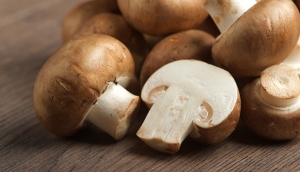What is an autoimmune disease diet? What foods should you eat and avoid when you have the disease? Keep on reading this article to get the answers.
Autoimmune diseases affect 23.5 million people in the US. These diseases can be debilitating, overwhelming and frustrating. It is very hard to diagnose autoimmune diseases because their symptoms can be vague. Usually, it takes 2 to 6 years to get a diagnosis, depending on every patient. And there is no cure for autoimmune diseases. But foods can help the body heal and control inflammation. Here is everything you need to know.
Autoimmune Diseases: What Should You Know about?
Definition
An autoimmune disease is a condition in which the immune system attacks itself by mistake. As a result, many different tissues and organs of the body can be affected. They include:
- The skin
- The joints
- The liver
- The blood vessels
- The lungs
- The kidneys
- The brain
- The heart
- The intestines
- The thyroid
Symptoms can come and go, quickly or gradually. Each patient experiences differently. But usually, you may feel:
- Debilitating weakness
- Crippling pain
- Overwhelming fatigue
- Dizziness
- Brain fog
People with autoimmune diseases still have good and bad days. They do not look sick as they are. But most of the time, they may feel tired and miserable inside.

Causes
Many experts don’t know the exact cause of autoimmune diseases. But they suspect the following factors contribute to the diseases. They can be:
- Genetics. Autoimmune diseases run in families. If one of your family members has the disease, you will be likely to get it, too.
- Ages. People tend to get the disease at the ages between 14 and 44.
- Genders. Women are more likely to get an autoimmune disease than men.
- Race. African-American and Hispanic people are more likely to get the disease than Caucasians.
- Environment. Diet, toxins and bacteria can trigger an autoimmune disease.
- Infections. Experts say that bacterial and viral infections can be linked to autoimmune diseases. They can include herpes and chlamydia.
Read more: Can Trauma Trigger Lupus and Other Autoimmune Diseases?
Types
Autoimmune diseases have more than 80 different types. Some of the most common ones include:
- Type 1 diabetes. The condition occurs when the pancreas does not create enough insulin. People with the disease have to use blood glucose monitor to test their blood sugar levels for life.
- Rheumatoid arthritis (RA). The condition can cause pain, swelling, and stiffness in the joints.
- Lupus (SLE). The condition can affect various organs of the body, like the skin, joints, kidneys and brain. This can result in rash, fever, fatigue, headache and joint pain.
- Psoriasis. The condition causes the skin cells to build up rapidly and form red, itchy scales.
- Multiple sclerosis. The condition causes damage to the central nervous system. This leads to a lot of symptoms, like trouble walking, weakness and slurred speech.
- Addison’s disease. The condition happens when the adrenal glands do not produce enough hormones. Symptoms include weakness, fatigue, weight loss, and nausea.
- Graves’ disease. The condition occurs when the thyroid overproduces hormones. Symptoms are bulging eyes, anxiety and tremors.
- Celiac disease. This is an allergic reaction of the body to eating gluten. Over time, it damages the small intestines and leads to the malabsorption of some nutrients.
- Sjögren’s syndrome. The condition can cause dry eyes and mouth. It often goes along with other symptoms, like joint pain.
- Inflammatory bowel disease. The condition can cause inflammation of the digestive tract. It includes Ulcerative colitis and Crohn’s disease.

Complications
An autoimmune disease can cause inflammation in various parts of the body. If untreated, it can put you at higher risk of serious complications. Some serious health problems caused by these diseases are:
- Depression
- Heart disease
- Pulmonary embolism
- Cancer
- Other autoimmune diseases
Read more: 8 Serious Complications of Lupus If Left Untreated
Autoimmune Disease Diet: What Foods to Eat and Avoid?
Foods to eat when you have an autoimmune disease
Research suggests that an autoimmune disease diet should be a vegetable-rich plant-based diet. Also, it should include an increased level of some specific nutrients, such as:
- Fiber
- Potassium
- Magnesium
- Beta-carotene
- Folate
- Vitamin A
- Vitamins K and C
Foods with those above nutrients play a role for a healthy and balanced immune response. If you’re having an autoimmune disease, you should consider eating them. They are:
Leafy greens
For example: broccoli, cabbage, collard greens, mustard greens and kales.
These veggies are loaded with essential vitamins and minerals. So, add them in your diet to fight recurring anemia and control inflammation.

Mushrooms
This is a magical veg that can help alleviate autoimmune disease symptoms. Mushrooms are loaded with anti-inflammatory properties. So, add them to your diet to suppress the diseases and get allergy relief.

Onions
Onions contain antioxidants, which can help treat rheumatoid arthritis and joint pain. So, add them to your diet for beneficial effects.

Squash
Pumpkin, zucchini and butternut are powerful squash to fight inflammation. They contain antioxidants and fatty acids (like omega 3s). So, eating these squash can be very beneficial for you.

Turnips and Rutabaga
There are a lot of positive ingredients in Turnips and Rutabaga. They are antioxidants, zinc, iron, magnesium, potassium, vitamin C and more. Consuming them can offer many health benefits for autoimmune diseases.
Read more: 10 Worst Things That Happen When You are Vitamin D Deficient

Foods to avoid when you have an autoimmune disease
An autoimmune disease diet should exclude some of the following foods.
Sugar
Sugar can trigger digestive dysfunction, causing an autoimmune disease flare. It can also contribute to leaky gut syndrome and cause severe inflammation. So if you are having an autoimmune disease, avoid eating sugar. Instead, drinking fruit juice, such as guava, orange, mango, strawberry and pineapple.

Gluten
People with autoimmune diseases, especially celiac disease should avoid eating gluten. This protein can cause leaky gut, trigger inflammation and promote overactive immune system.

Animal products
If you are having an autoimmune disease, avoid eating animal products, such as eggs, milk and meat. They are known to trigger inflammatory response in the body, causing a flare up.

Read more: Foods Could Be Making Your Joints Hurt
To control autoimmune diseases, you should also manage stress, exercise and consume supplement. LupuFree, Curcumin/Turmeric and Resveratrol are the best supplements for autoimmune diseases. Consult a doctor to decide which one is the best for you.